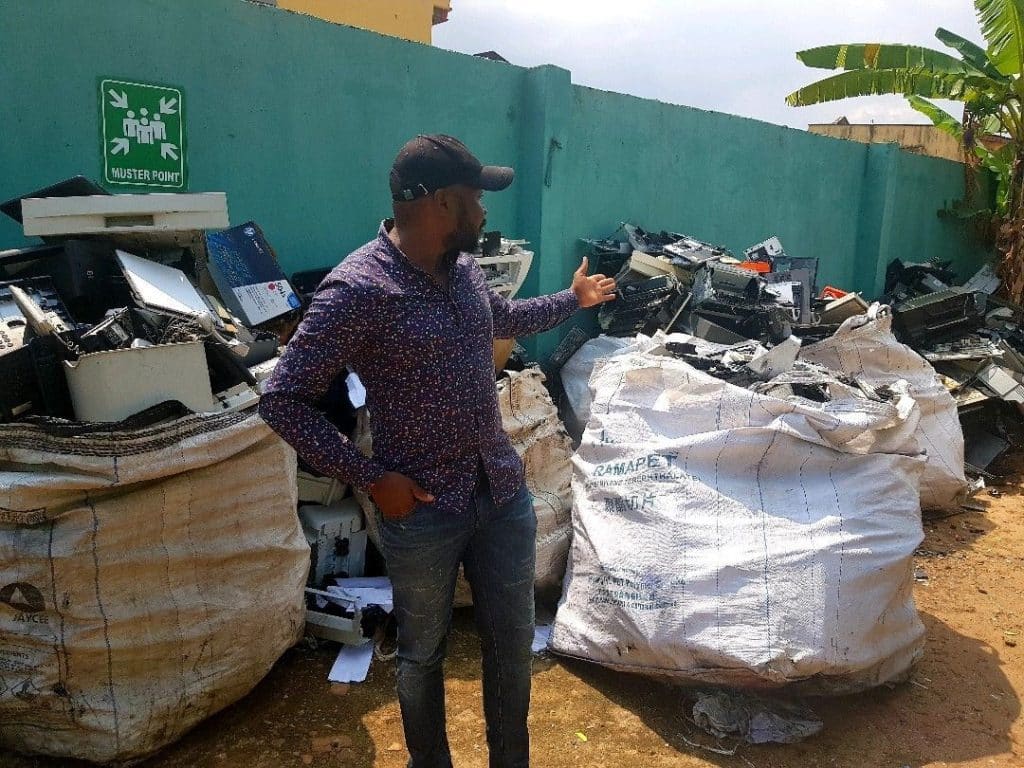According to the U.S. Environmental Protection Agency (EPA), Nigeria produced 16,900 tons of waste electrical and electronic equipment (WEEE) between 2015 and 2016. It is against this backdrop that Lagos-based startup Quadloop has embarked on manufacturing solar lanterns through the recycling of lithium batteries from old computers and cell phones.
“We discovered a market for locally made electrical products, but for which the components were not available in the country. At that point, we noticed that if we take advantage of electronic waste, we will reduce the cost of production as well as the cost at the point of sale,” explains Dozie Igweilo, the founder of Quadloop. These lights are then marketed to small local businesses and hairdressers who use them to reduce their energy consumption at night or as an alternative to power cuts.
Other initiatives are also underway in Nigeria to reduce the proliferation of electronic waste in nature. This is the case of a project to recycle one million used devices launched in the second half of 2022 by the British telecommunications operator Vodafone as part of its eco-friendly approach in Nigeria, Cameroon and Ghana.
Lire aussi-NIGERIA: Start-up Kaltani raises $4m to recycle plastic waste
Ghana generates 170,000 tons of electronic waste each year, a quarter of which ends up in the Agbogbloshie landfill in the suburbs of Accra. Thus, the government of this West African country will inaugurate an electronic waste recycling center near the capital on October 31, 2022. The facility, which has also created (directly and indirectly) 22,000 jobs, has a temporary storage area, a recycling unit, a weighbridge, a guardhouse and a transformer. These facilities will enable the recovery and resale of cables, mixed batteries, thermoplastics and CRT televisions.
Benoit-Ivan Wansi
